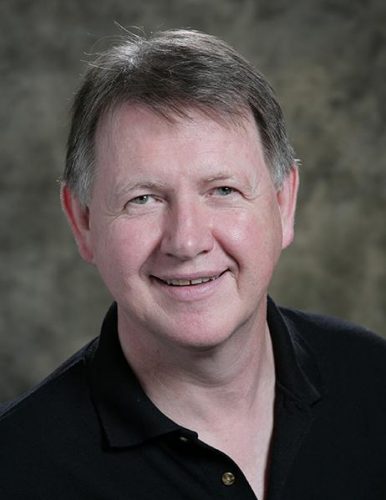Escaping the Echo Chamber
 A Letter to Pittsburgh Presbytery from
A Letter to Pittsburgh Presbytery fromEscaping the Echo Chamber
The January 6 hearings have revealed a great deal of what went on in the White House in the days leading up to, on the day of, and in the days following the January 6, 2021 storming of the US Capitol. Predictably, the hearings have solidified Democrats in their opposition to Donald Trump, while they have had virtually no effect on his most ardent Republican supporters.
Differences in response are conditioned by confirmation bias – we gravitate to voices and viewpoints that confirm our own already-settled convictions. We follow news sources that give us the angle we want, and select stories that make us feel good about what we want to believe. We prefer living in echo chambers where all we hear are voices like our own.
We cannot grow if we listen only to voices that declare what we already believe to be true. When we stay within our own echo chamber, we consign ourselves eventually to death, because that which does not grow eventually dies.
Paul points to Jesus as the ultimate exemplar of the grace of regarding others as better than ourselves. This involves at minimum putting the needs and interests of others ahead of our own. But could it mean more? Could it mean attentively listening to others who see things from a perspective other than our own?
Paul warns against members of Christ’s body thinking they don’t need members who are different from them. We need not only those who differ in function, but also those who differ in perspective from us, if we are to grow into what God has called us to be.
Valarie Kaur is an activist who has made listening to voices from differing perspectives a lifelong project. She holds, “Deep listening is an act of surrender. We risk being changed by what we hear.” Listening to voices in our own echo chamber involves no risk of change. But truly listening to voices from other perspectives takes courage, a surrender to being changeable.
Kaur teaches that truly listening to people who see things different than we do begins with asking what is at stake for them. We wonder not only how they see the world, but why they have chosen that perspective. This inevitably leads us to learn their story.
By listening to the story of someone outside my echo chamber I am entering into the world of James 1, where genuine godliness is marked by being quick to listen and slow to speak. In the echo chamber, my own voice dominates the discourse. When I listen to the stories of others who differ from me, I escape that chamber.
Several years ago, as part of an interfaith gathering, I found myself in an extended conversation with a Hindu man who happens to be a distinguished professor at a local university. He told me his story, of yearning as a young man to live as a monk, but finances would not permit. He testified that his hunger for God has never abated. Each day as he drives the Parkway to work, he told me, he listens to devotional music that lifts his spirit for the day ahead. His focus is on God, and God’s blessings that day.
It unglued me to realize that the piety of a Hindu man could be this similar to my own. I listen to devotional music on my Parkway commutes as well. I may not wish to have lived in a monastery, but like him I find my life captivated by the desire to serve my Lord.
I don’t know exactly how the God of Abraham and Sarah, Mary and Martha, and Paul and Barnabas relates to Hindus. But this much I know – the story of an earnest Hindu lover of God changed forever my way of understanding Hindu faith in and love of God. It hasn’t made me a Hindu, but it has dramatically altered my view of Hindus.
Congregations can easily become echo chambers where everyone thinks similarly. When we join a church we naturally seek the company of those who resonate with our own world view. Congregations are by their very nature deeply homogeneous. Presbyteries, on the other hand, challenge us to gather and work with believers from congregations different from our own.
One of the great joys of my work is visiting congregations that are very different theologically and politically, yet united in the most important thing – seeking to love and serve the Lord with all their heart and mind and strength. I am immeasurably richer for being with people whose perspectives and stories differ greatly, even as they confess one Savior and Lord.
Which leads me to a modest proposal: that each of us commit to listen deeply to one fellow-Christian and to worship whole-heartedly with one congregation whose perspectives differ from our own. Who knows what we might learn, or even how we might be changed?
Eager to hear your story,

